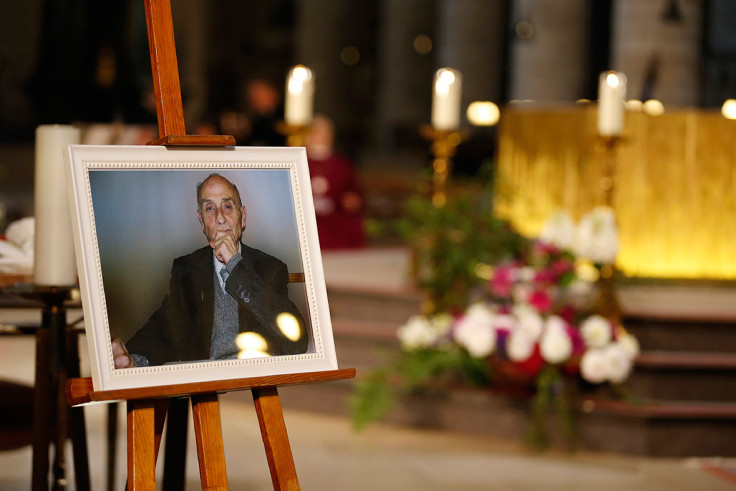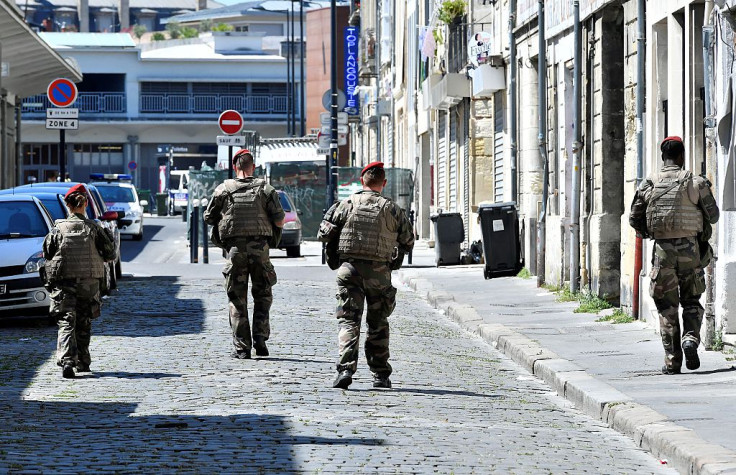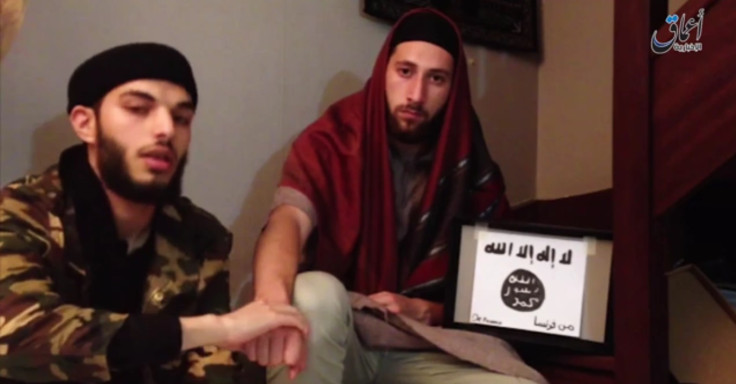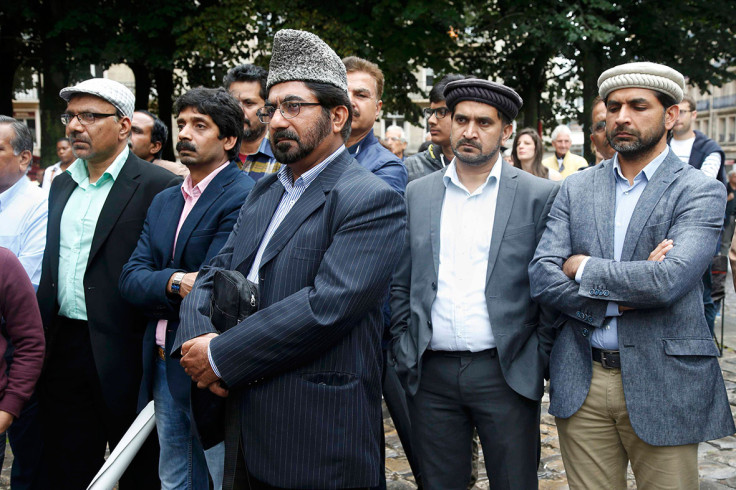France walks tightrope between liberty and security after Isis horrors shake nation to its core
French state fears far right backlash over calls for anti-Muslim measures.

Drawn to terrorism along entirely different routes, the men responsible for slaughter on Nice's Promenade des Anglais and the chilling murder of a priest in Normandy bear witness to dramatic changes in the war Isis is waging on western society.
If efforts to stop or at least limit Islamist violence did not already seem a steep uphill battle, the terror group's increasingly flexible approach to the recruitment of volunteers has nightmarish implications for the security services.
Staying a step ahead of Isis has become harder amid clear signs of its willingness to organise, or retrospectively admit to, acts of violence committed by just about anyone ready to serve its cause – whether the volunteers happen to be students, fathers with steady jobs, criminals, drunks, drug-takers or wife-beaters.
And the broadening nature of attacks and attackers have prompted calls for a set of new counter-terrorism measures, ranging from a temporary ban on foreign funding for mosques to the internment of those suspects whose involvement in actual crimes, or the planning of them, would be difficult to prove in court. There are also calls for streamlining the police and intelligence services.
For an idea of the scale of the threat confronting not just France but the West as a whole, a recent New York Times report offers disturbing detail. The paper conducted a prison interview with Harry Sarfo, from Bremen, who was trained by Isis in Syria to commit acts of terror in his native Germany but became disillusioned and escaped. It also saw transcripts of his interrogation by German officials soon after he returned to Bremen in July 2015, some time before the Paris, Brussels and Nice attacks.
Sarfo is now serving a three-year jail sentence back in Germany. He had wanted to fight in Iraq and Syria but was told domestic terrorism was a more pressing need.
Islamist terrorist strikes on French soil followed an essentially predictable pattern, every identified attacker turning out to have been known to the intelligence services as actual or suspected extremists.
"They told me that there aren't many people in Germany who are willing to do the job," Sarfo told investigators soon after his arrest, recounting a conversation from three months earlier. "They said they had some in the beginning. But one after another, you could say, they chickened out, because they got scared — cold feet. Same in England."
By contrast, a member of Islamic State's secret service, Emni, had said there were "loads of people living in European countries ... waiting for commands to attack the European people", Mr Sarfo told the newspaper. In France in particular, he was assured, there were volunteers galore. "And that was before the Brussels attacks, before the Paris attacks."
The relatively light sentence imposed on Sarfo may reflect his willingness to cooperate and the value of his first-hand experiences. The authorities believe he no longer poses a threat.

For four years until June, Islamist terrorist strikes on French soil followed an essentially predictable pattern, every identified attacker turning out to have been known to the intelligence services as actual or suspected extremists. Many also had records of criminality as the products of France's grim, immigrant-dominated banlieues.
In their own distinct ways, the mass murder committed in Nice, when Mohamed Lahouaiej-Bouhlel drove his hired 19-tonne lorry at speed into crowds of men, women and children who had just watched a Bastille night fireworks display, then the vile killing of Father Jacques Hamel at the altar of his Normandy church, reset the parameters.
In Nice, the 31-year-old Tunisian delivery driver had a police record for offences that marked him out as a potentially violent man, but the authorities had seen no reason to link him to jihadism despite the city's reputation as a hotbed of extremism.
Mainstream Muslim opinion would harden if internment were used clumsily, unjustly or as an exclusively anti-Islam instrument.
Several suspected accomplices now face charges for direct or indirect implication in the events leading to the act of terror on a Riviera seafront that left 84 people dead and more than 300 injured. Like Lahouaiej-Bouhlel, some had connections to petty criminality; also like him, none was considered a possible terrorist.
Contrast this with the case of the two teenagers who burst into midweek morning mass at the Catholic church in Saint-Etienne-du-Rouvray and slit Father Hamel's throat on July 26. Both came from homes of relative comfort, not the no-hope estates on the edges of French cities that serve as breeding grounds for poverty, lawlessness and a dangerous contempt for ordinary values.
Adel Kermiche lived just a 25-minute walk from the church. His mother is a teacher, his siblings included a surgeon and an engineer. His accomplice, Abdel Malik Petitjean, was a product of la France profonde, raised initially in the town of Saint-Die-des-Vosges, in the east of the country. When his adoptive father and his mother, of Algerian roots, split up, he lived with her in the genteel Alpine spa town of Aix-les-Bains.

Both Kermiche and Petitjean, however, appeared in France's famous Fiche S, a list of 10,500 people – on figures given last December by the French prime minister Manuel Valls – suspected of belonging or having some links to Islamist groups.
Kermiche was awaiting trial over two abortive attempts in 2015 to join Isis in Syria. Beyond belief to many observers, he had been granted bail in March after 10 months in custody. Somehow he convinced an anti-terrorism judge and an appeal court, despite prosecutors' objections, that he had seen the error of his ways and wanted to build a new worthwhile life.
Petitjean's mother spoke initially of her disbelief that her "adorable" son could be involved in anything as evil as the church attack. But it has emerged that a local imam had raised concerns with her about the company he was keeping. Petitjean was given Fiche status only at the end of June, after he too tried unsuccessfully to travel to Syria.
Kermiche was under a limited form of house arrest that still allowed him freedom of movement each weekday morning as well as on weekend afternoons. But intelligence experts regularly warn that Fiche S does not equate to round-the-clock surveillance; with so many known potential extremists at liberty, constant monitoring is simply beyond the authorities' resources.
This has fuelled demands for detention without trial. Internment is not a weapon with a great history of success in fighting terrorism. It failed in Northern Ireland in the 1970s, partly because only republican suspects from the IRA – and none from extremist loyalist groups – were detained. The much-criticised Guantanamo Bay detention camp inside the US naval base in Cuba has been described by President Barack Obama as a "sad chapter in American history", though his efforts to close it have so far been frustrated by Republican opposition.
Any attempt to introduce an equivalent measure in France, or in the many European countries living under the threat of IS terrorism, would require meticulous care and strong safeguards including case-by-case judicial reviews. At a time of official warnings that far right extremists may launch attacks of their own in response to Islamist terror, it would probably also have to target all threats. Mainstream Muslim opinion would harden if internment were used clumsily, unjustly or as an exclusively anti-Islam instrument.

The French government's talk of banning, at least temporarily, foreign funding of new mosques seems, at best, a cosmetic remedy. Most radicalisation occurs in jail, online or in personal contact away from places of worship.
But the clamour for fresh, robust responses has risen as France has become less secure.
And the most constant complaint is that one attack after another has turned out to be the evil work of known extremists. In a long question-and-answer interview with the Nice local newspaper, Nice-Matin immediately after the carnage of the Promenade des Anglais on July 14, the conservative leader of the Alpes-Maritimes departement or county, Eric Ciotti, also a French MP, again raised the question of internment.
"I have been calling or four years for measures such as the detention of individuals who present a menace, that we do not release prisoners who have become radicalised in jail and that we reinstate border controls," he said. It was time, he added, to break with the naivety that produced repeated declarations about France being "at war" but no readiness to use "the weapons of war needed to win the battle".
Mr Ciotti could fairly claim that the killing of an 85-year-old priest as he celebrated mass would not have taken place had internment camps already been opened and both the young killers held in them.
What he cannot say – and what makes the issue of how to mount counter-attacks on Isis so complex – is that none of the measures currently under discussion would have stopped Mohamed Lahouaiej-Bouhlel, whose most serious brush with the law had been a suspended sentence for road rage, committing mass murder on a Mediterranean seafront.
Colin Randall spent 29 years at The Daily Telegraph as reporter, chief reporter, executive news editor and Paris bureau chief, was executive editor for the launch of The National (UAE) in 2008, and now freelances and edits websites from London and the south of France. He tweets at @salutsunderland
© Copyright IBTimes 2025. All rights reserved.





















